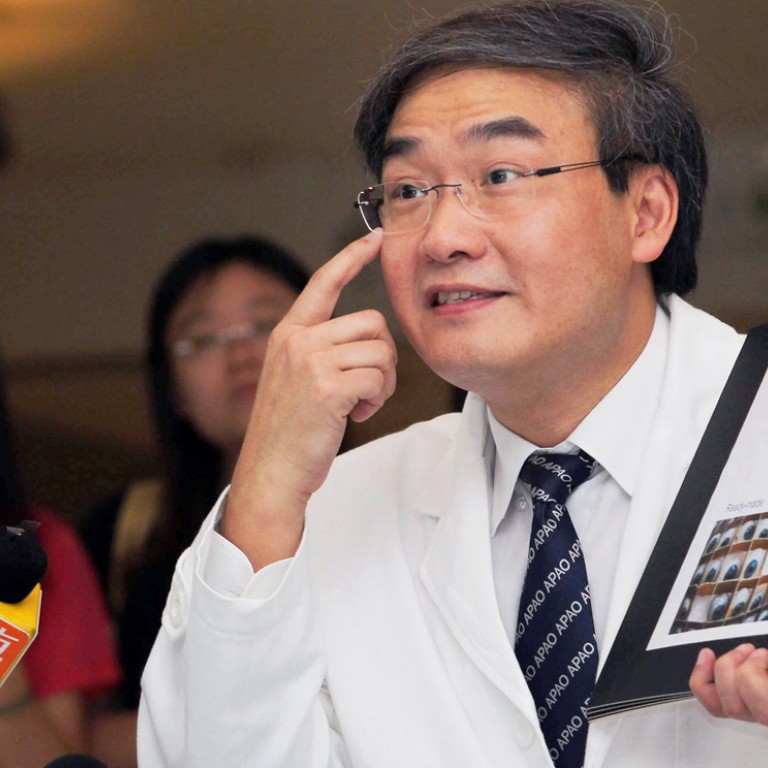
Completely foreign owned hospitals approved for leading cities
Regulators approve medical centres wholly owned by overseas investors in top cities, but healthy returns will be a long time coming
Overseas investors in private hospitals will have to wait several years before their businesses become profitable, experts and industry players warn.
The facilities target the rising number of rich mainlanders but most remain small and struggle to lure top doctors away from prestigious public hospitals, they say.

The move comes after the shareholder ceiling for foreigners in joint-venture hospitals was raised to 70 per cent in 2000. Three years ago, investors from Hong Kong, Taiwan and Macau were allowed to set up wholly-owned hospitals in several provinces and municipalities.
Separate government figures are not available for foreign wholly or partly-invested hospitals as the state health authority counts them in the same category. However, experts believe that there are about 150 hospitals with foreign shareholders in the country, including 40 each in Beijing and Shanghai.
Fewer than 20 per cent have 200 beds or more. Most were struggling and only a few posted a profit, said Hanson Li, co-founder and managing director of the Beijing-based Huatone China Strategic Investment Solutions.
"Over the past two decades, the number of high-income earners on the mainland has swelled significantly. But the number of foreign hospitals that are supposed to serve this particular group remains low," he said.
"We see foreign investors come to the market one after another; yet successful cases are scarce."
The biggest stumbling block was the shortage of top domestic doctors, Li said. It would be impossible for a foreign health centre to be staffed by overseas doctors, he added, as the cost alone would be prohibitive.
Top mainland doctors prefer to work at prestigious public hospitals, where they enjoy higher social status and supplementary grey income such as kickbacks.
Zim Rich, CEO of the American-funded Shanghai St Michael Hospital, echoed the concerns, saying any mainland hospital still focused on expatriates would "die soon".
"The expat population is tiny compared with the local Chinese population," Rich said. "And foreigners will leave after some years of staying [in China]."
Margaret Xiao is one of Shanghai's nouveau rich. She gave birth to her older daughter at a foreign hospital in the city at a cost of about 100,000 yuan (HK$126,000). That was three years ago and she now sends the girl to an international kindergarten for 120,000 yuan a year. Recently her second daughter was born in the same hospital, at a slightly higher cost than for the first daughter.
"I prefer to make appointments with Chinese doctors [at foreign hospitals] because there is no language barrier," Xiao said. "I have many questions about health, but I am not familiar with medical terms in English."
Rich's's hospital has 28 doctors, half of them local and the rest from overseas. It receives up to 50 patients a day, 70 per cent of whom are overseas residents. The bed occupancy rate is 30 per cent. He said he would like to attract more local patients by hiring more elite local doctors.
"[Hiring] is a formidable challenge since most of the top doctors won't quit their public hospital positions," he said. "Their remuneration is good, including a large amount of 'grey income' from pharmaceutical companies and patients. They hold high academic titles that will be revoked after leaving public hospitals."
Liu Jiangning, president of the C-MER (Shenzhen) Dennis Lam Eye Hospital, said more overseas investors had communicated about opening hospitals over the past few months, but that didn't mean the number of foreign-funded hospitals would rise much. His hospital is wholly owned by Hong Kong ophthalmologist Dennis Lam Shun-chiu.
"Another important uncertainty in establishing hospitals is the attitude of the local government. Therefore you have to count on your luck to meet officials with an open mindset and a supportive position."
Added Li from the investment firm: "Foreign capital, facing such problems as poor access to loans, high taxes and difficulties in attracting local doctors, will think it is a hard choice to fund hospitals in China."
Rich, however, said that because of the mainland's large population and economic opportunities, more foreign medical institutions would arrive. "China is the world's second largest economy. Who doesn't want to grab a piece of that big pie?" Rich said.
"Medical giants have the money, time and patience. They can wait for as long as needed - a decade or more - to see returns in this market."

